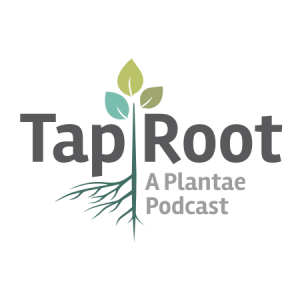Taproot S4E2: The GRExit and how we choose who goes to grad school
 In this episode, we talk with Dr. Zen Faulkes about the graduate application process, what program directors are looking for and how hard (or indeed impossible) it is to have unbiased selection system.
In this episode, we talk with Dr. Zen Faulkes about the graduate application process, what program directors are looking for and how hard (or indeed impossible) it is to have unbiased selection system.
Zen gained a B.A., Psychology at the University of Lethbridge in 1989 and a Ph.D. at the University of Victoria about sand crab digging behaviour in 1996. He was a postdoctoral researcher at McGill University until 1999, and then he was a postdoc at the University of Melbourne until 2001. He is currently a Professor at the University of Texas Rio Grande Valley. Zen writes the “Better Posters” blog, which dispenses advice on how to improve the posters we present at meetings.
In this episode, we discuss his publication, “Resolving authorship disputes by mediation and arbitration” in Research Integrity and Peer Review, and also his letter in Science titled “#GRExit’s unintended consequences”. As graduate program coordinator, he talks about the pros and cons of GREs. Whilst universities are looking for “successful” people we have a chat about how we could define “success” to begin. Are assessments really consistent and reliable? Hm.
We talk through the whole graduate application process step-by-step from both the applicant’s and recruiter’s point of views. We chat about how to structure personal statements and what to expect during interviews but also keeping in mind that everyone is different and perhaps more introverted students might feel at a disadvantage.
Zen recommends students to ask program directors what competitive applications look like – they are very likely to give straight answers. While it is good to have a high GPA for a masters program, students really should get to know what the requirements and expectations are for different programs. Zen says, “If you inspire to go to graduate school, you have to be proactive thinking about what your opportunities are.”
We leave students with a final piece of advice: every semester get to know one professor slightly better so at least you have a few people who know more about you. Asking for advice from professors and program directors can make graduate school application a whole lot smoother!
How to listen, download and subscribe to The Taproot podcast
A transcript of this episode generously provided by Joe Stormer can be found here.
SHOW NOTES:
Faulkes, Z., 2018. Resolving authorship disputes by mediation and arbitration. Research integrity and peer review, 3(1), p.12. https://researchintegrityjournal.biomedcentral.com/articles/10.1186/s41073-018-0057-z
GRE exit – does not predict “success” – Letter in Science https://science.sciencemag.org/content/363/6425/356.2
Better posters site: http://betterposters.blogspot.com/
Blog:
https://neurodojo.blogspot.com
Free pdf: https://faculty.utrgv.edu/zen.faulkes/Presentation_tips.pdf
The Taproot is the podcast that digs beneath the surface to understand how scientific publications in plant biology are created. In each episode, co-hosts Liz Haswell and Ivan Baxter take a paper from the literature and talk about the story behind the science with one of its authors.
Subscribe to The Taproot podcast on iTunes or Stitcher.
Questions, feedback, suggestions? Contact us at [email protected].





Leave a Reply
Want to join the discussion?Feel free to contribute!